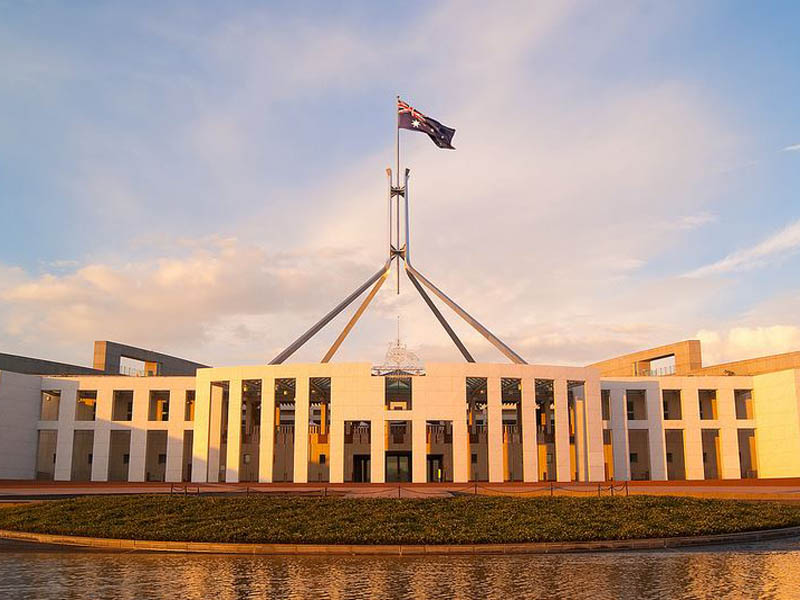It is a national disgrace that must be born by every government since Bob Hawke’s that the Australian telecommunications market is still so effectively dominated by Telstra, which rakes off huge profits each year at the expense of Australian businesses and consumers.
By definition that means Australia continues to give up potential, and much needed productivity gains. It has cruelled Australian industry’s collective ability to compete in an increasingly global environment.
In the annual Charles Todd Oration last week, Vodafone Hutchison Australia’s Spanish chief Inaki Berroeta noted that there is virtually no telecommunications competition or choice in regional and rural Australia.

He added that Australia is “one of the most concentrated telecommunications markets in the western world; and that it has “relatively low fixed-broadband penetration and some of the highest fixed-line prices in the world.”
Vodafone’s move into the fixed broadband market – something the company has been mulling for the better part of a decade – using the National Broadband Network will be a fillip for both companies, and for competition.
Vodafone’s strategic switch has been cannily timed to coincide with Australian Competition and Consumer Commission in its inquiry into the neglected issue of mandated mobile network roaming for the 8 per cent or so of Australia’s population who are inequitably deprived of proper competition for mobile broadband services.
Vodafone wants the ACCC to force Telstra to sell – not give, mind you – wholesale services on its mobile networks in areas where Vodafone does not have infrastructure.
Telstra has launched one of its most hysterical – the spot-on term used by Mr Berroeta – well-funded media campaigns against any moves by the ACCC in recent years.
This tells you everything you need to know about what is at stake: The company’s exposure to more competition, a threat to its dominance of the rural telecommunications near monopoly that gives it a massive free kick in terms of adding to the scale that is so critical to network economics.
The problem for Telstra – and something that has for so long been largely ignored – is that much of its mobile network infrastructure in the more remote of parts of Australia has been funded by taxpayers and by consumers in the shape of the Universal Service Obligation.
This is through the Universal Service Obligation fees paid by all telecoms companies – and therefore built into their pricing structure – and serial government-funded project to extend services and fill in mobile black spots.
Yes, Telstra pays the most into the USO by virtue of its market dominance – providers pay according to their size – and the company then promptly most of the money back to extend its networks.
It is in the best position to win tenders because of its dominance in regional areas. It is the proverbial chicken and the egg.
It’s also worth noting, by the by, that its mobile market dominance had been funded over the years by the now fasting-fading near monopoly products from its fixed line business.
It’s a virtue-less circle, a money-go-round that serves to increase and embed the company’s dominance in regional Australia.
Rarely troubled by competition in regional Australia, when it occasionally appears it can dispatch it to the financial wilderness by dropping a lazy few million dollars, or a similar rounding error from its multi billion dollar profits, into its formidable marketing and public relations machine.
So while it may sound obscure, the ACCC inquiry in fact has the potential to deliver a game-changing decision helping to remove the digital divide that has left Australians in many regional areas.
Importantly, from the perspective of communications public policy in Australia, in his remarkably clear-headed, detailed deconstruction of Australia’s telecommunications sector, Mr Berroeta has sent a message to Canberra that Australian communications policy in this country is trapped in the past, and needs an urgent upgrade.
For too long, fixed and mobile infrastructure in Australia has been considered separately. The time is long past due that this false dichotomy ended.
Policy-makers in Canberra have ignored the centrality of mobile broadband to Australians, blithely believing, one has to suppose, that because Australia has three physical networks their work there is done.
So, yet another indictment on Australian policy-makers who have serially failed to consider a national broadband market that is access technology agnostic.
In fact the failure is the Prime Minister’s in particular.
When he recast the NBN, he should have recognised what his predecessor failed to; that the project was about broadband, actually.
In 2016 broadband means always on, anywhere, not just the fixed connection – in the wi-fi network that hang off them – to homes, business and essential services.
Once again, the much-maligned under resourced competition regulator, perennially outspent by the corporate heft of Telstra, and occasionally its rival Singapore Telecommunications via its Singtel Optus subsidiary, has had to take the lead on an issue that governments concerned with the universal provision of broadband should have been all over.
It’s wearying to have to keep reminding people that Prime Minister Malcolm Turnbull’s fracturing NBN Mark 2 ignores mobile.
And his innovation strategy has a gaping hole: It does not have a cohesive national plan for equitable broadband – the delivery platform for the technology services and solutions that he hopes will underpin the growth of new industries.
As Mr Berroeta noted pointedly, customers – be they consumers, businesses or service providers of all stripes – do not care about the technology that sits behind the software, applications, government services, or media services they need or wish to use.
They simply want a seamless, reliable delivery platform to access multimedia digital services in the same way that Australia’s electricity networks, and water and sewerage systems deliver.
Broadband is essential infrastructure. It needs to be regulated as such.
Do you know more? Contact James Riley via Email.
